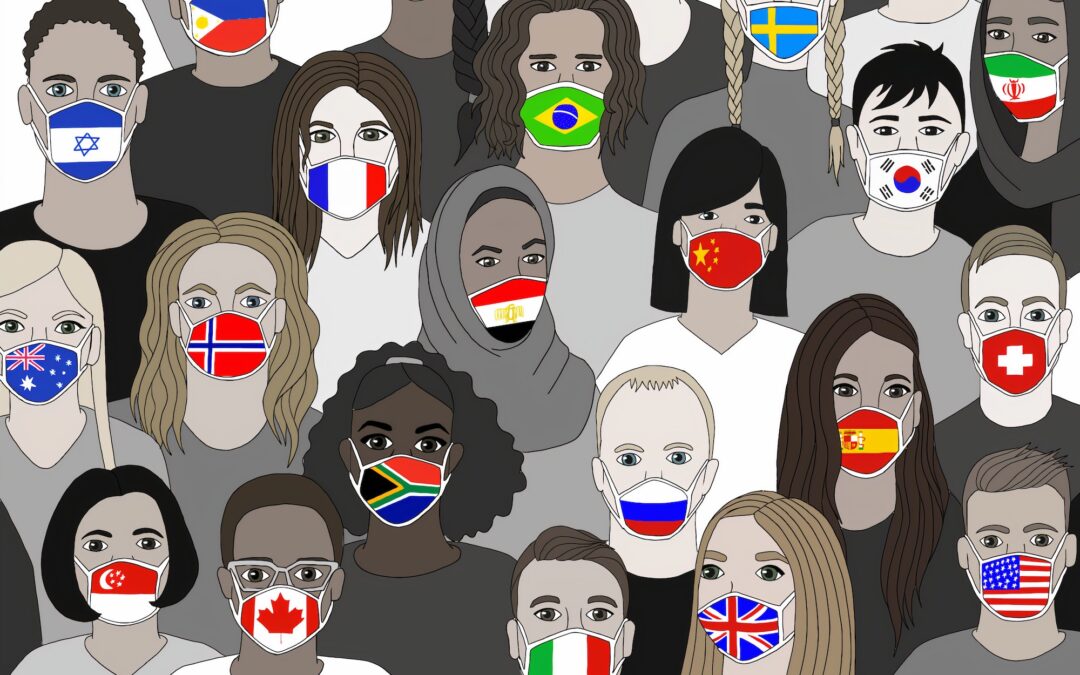Wearing a mask has taken on a meaning above and beyond the simple paper or cloth mask scientists encourage and some governments mandate in the name of public safety in light of COVID-19.
Face masks are currently recommended and increasingly mandated in most public settings throughout Europe to help protect contracting and spreading the novel coronavirus. Here’s what you need to know about when, where, and for whom wearing a mask is necessary, and whether you can be exempt from wearing one.
Who needs to wear a face mask? What type of face mask do I need?
Of course, we all need to respect government mandates and requests from businesses as to wearing a mask. However, which mask do you need?
There are basic cloth masks covering nose and mouth and then there are medical masks, either a classical surgical mask or the better-filtering N95 mask. Here are the current recommendations from the World Health Organisation.
Surgical or medical face masks are for:
- Health care workers
- People with COVID-19 symptoms (cough, runny nose, fever)
- People taking care of someone with suspected or confirmed COVID-19
- People who are 60 years old or older (when social distancing isn’t possible in areas with widespread COVID-19)
- People who have underlying health conditions (when social distancing isn’t possible in areas with widespread COVID-19)
Cloth face coverings or fabric masks are for everyone when:
- COVID-19 is widespread, as it is throughout Europe and the Americas.
- Physical distancing of at least 2 metres isn’t possible (including on public transportation, workplaces, stores, and other crowded environments)
Can you be medically exempt from wearing a face mask?
Ah, here is where it gets tricky. Many people express concerns that wearing a mask might limit oxygen intake in ways that could be harmful. The fibres that make up the cloth masks and surgical masks that the general public wears are not dense enough to block the exchange of oxygen and carbon dioxide gasses. They also are not air tight so air can get in around the sides.
However, after wearing a N95 masks for an extended period, the amount of oxygen you take in can be reduced. This is because the N95 masks seal more tightly to the face. Any risk involved with the N95 masks would be people who are predisposed to pulmonary problems, like emphysema. So, while you may want to have a N95 masks for a flight, generally only medical workers should be wearing the N95s as they are still in short supply.
What about if you have a serious respiratory condition, such as emphysema? Are you exempt from wearing a mask then?
Well, actually, people with respiratory conditions especially need to wear a mask in public because they are at much greater risk for severe illness if they get COVID-19. Even if someone is reliant on oxygen when going out, they can still wear a loose-fitting mask over their cannula.
While certainly masks are generally bothersome, annoying and uncomfortable, there are almost no valid medical reasons not to wear one.
What do other doctors say?
The international medical community is in agreement with this.
“There are no known medical conditions aside from a severe skin condition (like a very severe burn that needs medical attention) on your face that would prevent a person from wearing this type of mask,” says David Kuafman, MD, pulmonologist and director of the medical ICU at Tisch Hospital in New York. “If you can wear a scarf to keep your face warm in the winter, you can wear a mask to prevent the spread of disease.”
If you feel that your respiratory condition truly is so delicate that you cannot breathe through a cloth face covering, you should consider staying home and not expose yourself to any risk. If you are that fragile, then a COVID-19 infection could be a death sentence.
